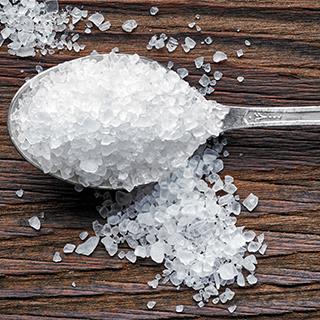Истакнути
- Преузми линк
- X
- Имејл адреса
- Друге апликације
what benefits do we have if we limit salt intake in heart failure
Recent studies suggest that severe salt restriction may not benefit heart failure patients and could even pose risks. Learn about the latest research and practical tips for balanced salt intake.

Heart failure is a serious condition that affects millions of people worldwide. It occurs when the heart is unable to pump blood effectively, leading to symptoms like shortness of breath, fatigue, and swelling in the legs and abdomen. Traditionally, severe salt restriction has been recommended for people with heart failure to manage these symptoms. However, recent research indicates that severe salt restriction may not provide the expected benefits for heart failure patients. In fact, it could potentially have adverse effects.
The Role of Salt in the Body
Salt, or sodium chloride, plays a crucial role in maintaining fluid balance, nerve function, and muscle contractions. While excessive salt intake can lead to high blood pressure and other cardiovascular issues, a certain amount of salt is essential for normal body functions. In heart failure, the body’s ability to manage fluid balance is already compromised, which is why salt intake has been a focal point of dietary recommendations.
Recent Research Findings
Recent studies have challenged the traditional view of severe salt restriction for heart failure patients. A comprehensive review published in the European Heart Journal analyzed data from multiple clinical trials and found no significant evidence that severe salt restriction improved outcomes for heart failure patients. On the contrary, some studies suggested that too little salt might lead to worse health outcomes, including an increased risk of hospitalization and mortality.
Potential Risks of Severe Salt Restriction
- Hyponatremia: This condition occurs when sodium levels in the blood become too low, leading to symptoms such as confusion, seizures, and even coma. Severe salt restriction can increase the risk of hyponatremia in heart failure patients.
- Decreased Quality of Life: Food flavor and enjoyment are often diminished with a low-salt diet, which can negatively impact a patient’s quality of life and adherence to dietary recommendations.
- Nutrient Deficiencies: Severely restricting salt can sometimes lead to inadequate intake of other essential nutrients, as patients may avoid certain foods altogether.
Balanced Salt Intake: A Better Approach?
Given the mixed evidence, many experts now advocate for a more balanced approach to salt intake for heart failure patients. Rather than severe restriction, a moderate reduction in salt consumption, tailored to the individual’s needs, might be more beneficial. This approach aims to prevent the adverse effects of both excessive and insufficient salt intake.
Practical Tips for Managing Salt Intake
- Read Food Labels: Many processed and packaged foods contain high levels of sodium. Reading labels can help you make informed choices.
- Cook at Home: Preparing meals at home allows you to control the amount of salt used.
- Use Alternatives: Herbs and spices can enhance flavor without adding extra salt.
- Consult a Dietitian: A registered dietitian can provide personalized recommendations based on your health status and lifestyle.
Conclusion
The latest research highlights the importance of re-evaluating dietary guidelines for heart failure patients, particularly concerning salt intake. Severe salt restriction may not offer the expected benefits and could pose potential risks. A balanced approach, considering individual needs and preferences, seems to be a more effective strategy for managing heart failure.
By staying informed and working closely with healthcare providers, heart failure patients can make better dietary choices that support their overall health and well-being.
- Преузми линк
- X
- Имејл адреса
- Друге апликације
Популарни постови
7 Health Benefits of Papaya: A Nutritional Powerhouse
- Преузми линк
- X
- Имејл адреса
- Друге апликације
Unlocking the Secrets to a Healthy Heart: Tips for Improving Heart Health
- Преузми линк
- X
- Имејл адреса
- Друге апликације
Коментари
Постави коментар